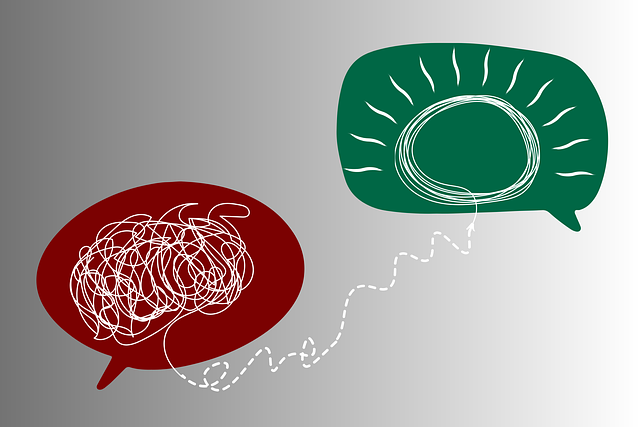Louisville Geriatrics Therapy offers specialized support for senior citizens dealing with trauma from childhood abuse, neglect, or loss. Their holistic approach includes self-care practices, resilience-building, and community outreach to empower seniors in healing and improving their well-being. By recognizing unique challenges like age-related changes, they provide tailored interventions, podcasts, and routines emphasizing Mind Over Matter. Through public education and awareness campaigns, Louisville Geriatrics Therapy ensures caregivers and the community can identify trauma signs, fostering safe environments for elders to process past traumas. Their comprehensive strategy combines therapy, policy advocacy, and emotional intelligence initiatives, transforming Louisville's response to trauma among the geriatric population.
Trauma support services are often overlooked yet crucial for elderly individuals, especially in urban centers like Louisville. This article delves into the significant impact of trauma on seniors and highlights the pivotal role of Louisville Geriatrics Therapy in providing specialized care. We explore common signs of trauma in the elderly and present effective strategies for delivering trauma-informed care. Furthermore, it discusses the need for a comprehensive trauma support system tailored to Louisville’s unique needs.
- Understanding Trauma and Its Impact on Seniors
- The Role of Louisville Geriatrics Therapy in Trauma Support
- Identifying Signs of Trauma in Elderly Individuals
- Effective Strategies for Providing Trauma-Informed Care
- Building a Comprehensive Trauma Support System in Louisville
Understanding Trauma and Its Impact on Seniors

Trauma can significantly affect seniors, a demographic often overlooked when discussing traumatic experiences. Louisville Geriatrics Therapy recognizes that aging individuals may have endured various traumas throughout their lives, including childhood abuse, neglect, domestic violence, or even the loss of loved ones. These events can leave lasting emotional scars and contribute to chronic mental health issues like depression, anxiety, and post-traumatic stress disorder (PTSD). Understanding trauma’s profound impact on seniors is crucial for providing appropriate support and care.
Louisville Geriatrics Therapy focuses on holistic approaches to healing, incorporating self-care practices and resilience-building techniques tailored to the unique needs of older adults. They also emphasize community outreach program implementation, ensuring that vulnerable seniors have access to resources and a supportive network. By addressing trauma in these ways, Louisville Geriatrics Therapy aims to empower seniors, help them heal from past traumas, and improve their overall well-being.
The Role of Louisville Geriatrics Therapy in Trauma Support

Louisville Geriatrics Therapy plays a pivotal role in providing trauma support services that cater specifically to older adults. Many times, individuals in this demographic may face unique challenges when healing from traumatic experiences, such as complex physical and cognitive changes associated with aging. The therapy offers a specialized approach, recognizing the intricate relationship between mental wellness and overall health. Through tailored interventions, they address not just the symptoms but also the underlying causes of trauma, focusing on improving quality of life and enhancing resilience.
This support is further amplified by the Mental Wellness Podcast Series Production and initiatives aimed at Self-Care Routine Development for Better Mental Health. By integrating these modern tools and practices, Louisville Geriatrics Therapy ensures that their clients can access accessible and engaging resources, reinforcing the principles of Mind Over Matter. This holistic approach not only empowers individuals to take charge of their mental health but also fosters a sense of community and understanding, crucial for navigating the complexities of trauma.
Identifying Signs of Trauma in Elderly Individuals

Recognizing signs of trauma in elderly individuals is a critical aspect of providing effective support services, especially in urban settings like Louisville. As geriatric therapy becomes increasingly important in addressing mental health concerns among the aging population, understanding trauma symptoms takes on heightened significance. Many elders may have experienced traumatic events in their pasts, such as war, abuse, or loss, which can resurface and manifest in various ways as they age.
Community outreach programs and public awareness campaigns focused on education play a pivotal role in this process. By raising awareness among caregivers, family members, and the community at large, individuals are better equipped to identify signs of trauma, such as sudden changes in behavior, flashbacks, or avoidance of certain triggers. This knowledge enables Louisville geriatrics therapy professionals to initiate conversations about coping skills development, offering a supportive environment where elders feel safe to process and heal from past traumas.
Effective Strategies for Providing Trauma-Informed Care

Effective strategies for providing trauma-informed care involve a holistic approach that centres around understanding and addressing the unique needs of individuals who have experienced traumatic events. Louisville Geriatrics Therapy, for instance, has pioneered methods that integrate emotional support with practical solutions tailored to each patient’s background and experiences. This involves actively listening to patients’ stories without judgment, creating safe and non-threatening environments, and employing techniques such as cognitive-behavioural therapy (CBT) and eye movement desensitization and reprocessing (EMDR) to help them process and overcome trauma.
Incorporating cultural competency training for healthcare providers is another key component. This equips professionals with the skills to respect and understand diverse cultural perspectives on trauma, ensuring that care remains sensitive and effective across various communities. Additionally, Mental Health Policy Analysis and Advocacy plays a crucial role in amplifying the accessibility of trauma support services. Initiatives aimed at improving mental health policies can lead to better resources, increased awareness, and more inclusive practices that promote resilience-building among individuals affected by trauma.
Building a Comprehensive Trauma Support System in Louisville

Louisville, a vibrant city with a rich cultural tapestry, has recognized the growing need for comprehensive trauma support services, especially within its geriatric population. To address this, local initiatives focus on integrating various therapy types, such as Geriatrics Therapy, to cater to the unique needs of older adults who have experienced traumatic events. By building a robust system, the city aims to enhance public awareness campaigns related to trauma and its impact on mental health.
One key strategy involves promoting emotional intelligence among healthcare professionals and the community at large. This involves training programs that teach stress management techniques and foster an environment where individuals feel supported and understood. Such efforts aim to revolutionize how Louisville deals with trauma, ensuring a more responsive and caring approach for those in need, particularly within geriatric care.
Louisville, with its growing elderly population, faces a critical need for comprehensive trauma support services. Recognizing the unique impact of trauma on seniors is paramount. Louisville Geriatrics Therapy plays a vital role in this regard, offering specialized care that addresses the specific needs of older adults who have experienced traumatic events. By implementing effective trauma-informed practices and building an integrated system, the city can ensure better outcomes for its elderly residents. This inclusive approach, focusing on early identification and appropriate interventions, is key to fostering healing and enhancing the overall well-being of Louisville’s seniors.














